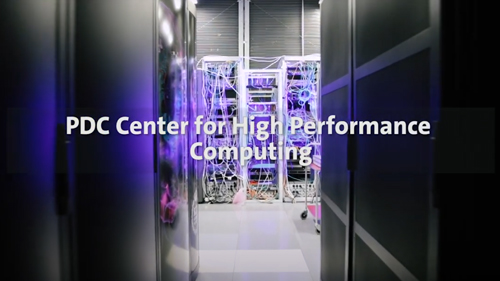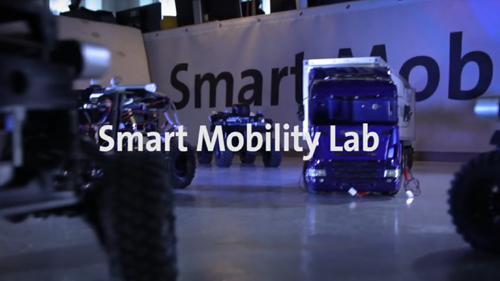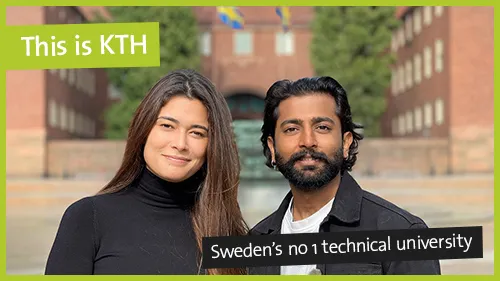MSc Computer Science
The master's programme in Computer Science provides a broad education in computer science. Students acquire a solid foundation in advanced algorithms, computer security, artificial intelligence and internet protocols, and gain expertise through specialisation tracks. Graduates pursue careers at the forefront of software-based technologies, for example, as software engineers, game developers, IT project managers, or go on to PhD studies to pursue careers in research labs or academia.

Computer Science at KTH
The master's programme in Computer Science provides a broad education in computer science with the possibility to specialise in different subjects. You will learn the methods for constructing software systems, including theoretical foundations and the practical ability to develop products and systems. During the programme, you will meet prominent guest lecturers from the industry and guest lecturers from other universities.
The programme starts with mandatory courses in advanced algorithms, artificial intelligence, computer security, internet protocols, and research methodology to give you an insight into different areas of computer science. You will gain skills to, for example, implement AI search algorithms, select countermeasures against security threats, improve randomised or approximation algorithms using heuristics, and use the most important network diagnosis tools. In the second semester, you choose one of the seven specialisations to gain in-depth knowledge in computer science. The specialisations are closely connected to the department's world-class research groups.
Data Science
In the Data Science specialisation, you will learn methods for managing and analysing data from various sources, such as biomolecular sequence data, images and video, text.
Interaction Design
In the Interaction Design specialisation, you will learn to design and develop interactive systems with modern development methodologies. The specialisation also provides a more profound knowledge of how to systematically evaluate interactive systems.
Cognitive Systems
In the Cognitive Systems specialisation, you will learn how to develop applications with artificial intelligence - abilities traditionally associated with humans. In the specialisation, you can focus on robotics and computer vision or conversational systems, for example, systems that interact through human language, such as voice assistants, social robots and chatbots.
Parallel Computing
In the Parallel Computing specialisation, you focus on advanced methods and techniques in high-performance computing (HPC) and quantum computing, with the goal of accelerating computation in a wide range of areas, including deep learning, large language models, computational fluid dynamics, space physics, biological systems, and drug development.
You will learn to develop and optimize computational solutions on supercomputers, clusters equipped with cutting-edge GPUs and multi-core processors, as well as quantum computers and their simulators.
Software Technology
In the Software Technology specialisation, you will explore the methods and tools for designing, developing and maintaining different types of software. Within the specialisation, you can focus on programming languages, compilers and program semantics or on software engineering, automated testing and large-scale development of reliable and secure software.
Theoretical Computer Science
In the Theoretical Computer Science specialisation, you learn about abstract and mathematical methods to study algorithms. You learn to use formal methods and focus on the verifiable properties of software and software systems.
Visualisation and Interactive Graphics
The Visualisation and Interactive Graphics specialisation stretches from basic visualisation and graphics to modern research in the field. Visualisation is mainly about making large and complex data understandable with the help of graphics but has applications in computer games and other virtual environments.
The programme also consists of 28 ECTS credits (about one semester) of elective courses, from which you can choose from a wide range of courses within computer science, to specialise further in your field of interest or broaden to new areas within computer science. The programme ends with the master's degree project, which involves participating in advanced research or design projects in an academic or industrial environment in Sweden or abroad.
Topics of previous master's degree projects include obstacle detection for unmanned vehicles, automated analysis of Ethereum smart contracts, neural networks on NPU-accelerated microcontrollers for edge computing, and optimizing speaker verification for resource-constrained devices.
This is a two-year programme (120 ECTS credits) given in English. Graduates are awarded the degree of Master of Science. The programme is given mainly on the KTH Campus in Stockholm by the School of Electrical Engineering and Computer Science (at KTH).
Courses in the programme
The courses in the programme cover topics such as software technology, algorithm analysis, computer security, artificial intelligence, networks, scientific computing, visualisation, machine learning, cognitive systems, theoretical computer science and data science.
Courses in the master's programme in Computer Science
Future and career
The master's programme in Computer Science delivers skills necessary for a career at the frontline of modern software technology. Graduates have found work at companies such as Google (USA, Switzerland, Sweden), Spotify, Oracle, Ericsson, Dice, Saab, Klarna, Bloomberg and Accenture. Previous graduates have worked as software engineers, researchers, IT consultants, data analysts, and game developers.
The programme also prepares students for a career in research or continued studies towards a doctoral degree. Former students have continued their studies on the doctoral level in Sweden, USA, Germany, and France, among others.
Sustainable development
Graduates from KTH have the knowledge and tools for moving society in a more sustainable direction, as sustainable development is an integral part of all programmes. The three key sustainable development goals addressed by the master's programme in Computer Science are:
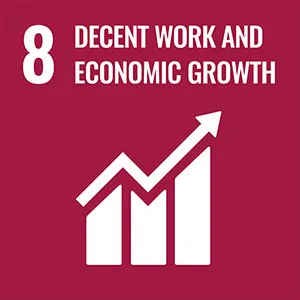
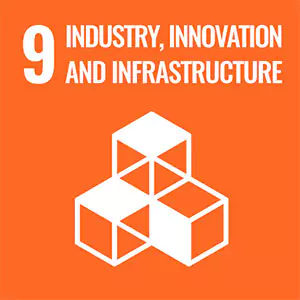

In this programme, you will learn how to develop smart digital solutions that address real societal needs. As digital technologies rapidly replace outdated and inefficient systems, you will gain both the theoretical knowledge and practical skills needed to create sustainable, computer-based solutions that bridge the gap between user needs and cutting-edge technical possibilities.
Computers are an essential part of modern industry, innovations and new infrastructure. Central societal structures, such as banking, primary healthcare and transport, are currently in a phase of dramatic transition, and others are expected to follow. As a skilled expert in computer science and software development, you will be a key player in steering these changes in a positive direction.
Faculty and research
The School of Electrical Engineering and Computer Science is one of five schools at KTH. The school conducts research and education in electrical engineering, computer science, and information and communication technology.
Home to several award-winning computer scientists, research projects at the school are funded by organisations such as the European Research Council, the Swedish Research Council, the Swedish Energy Agency, and the Swedish Foundation for Strategic Research (SSF). Faculty members are also supported by the Wallenberg Artificial Intelligence, Autonomous Systems and Software Program (WASP), Sweden's largest individual research programme. The school is also a strong partner of Digital Futures, a cross-disciplinary research centre with the vision to solve societal challenges through digital transformation, established in 2020 by KTH, Stockholm University and RISE.





